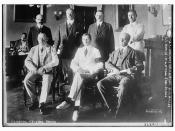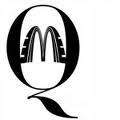Jury Nullification
Jury nullification is defined as the power of the individuals on the jury to judge the law itself and to refuse to convict the defendant if, in their judgment, the law is unjust. Jurors may also believe a law to be unconstitutional, unfair, discriminatory or misapplied in the particular case. (Libertocracy). For a trial to be legitimate, the jury must be informed that they have the right and duty to judge both the law and the facts. In order to fulfill their duty to the defendant, the community and their own consciences, they must use their own judgment to determine right and wrong and nullify unjust laws.
Jury nullification occurs when a jury returns a verdict of "Not Guilty" despite its belief that the defendant is guilty of the violation charged. The jury in effect mollifies a law that it believes is either immoral or wrongly applied to the defendant whose fates that are charged with deciding.
(Linder). Jury nullification refers to the idea that juries have the right to refuse to apply the law in criminal cases despite facts that leave no reasonable doubt that the law was violated. (Neubauer). In the United States, a trial involves an essential division of labor between a judge and jury. The judge is the determiner of the law and the jurors are the sole judge of the facts presented in the case. Under jury nullification, jurors are free to acquit if they find the evidence presented by the prosecution to be weak or unbelievable. The jurors however are not allowed to vote not guilty because they do not like the law in question. (Neubauer).
The history of nullification first came about where the power of the jury to judge the justice of the law and to hold laws invalid by...



Jury
You want a Federal Republic with Democratic tradition so deal with it. THe Jury system is in the Constitution so unless congress wishes to ammend the constitution to remove juries, deal with it.
0 out of 0 people found this comment useful.